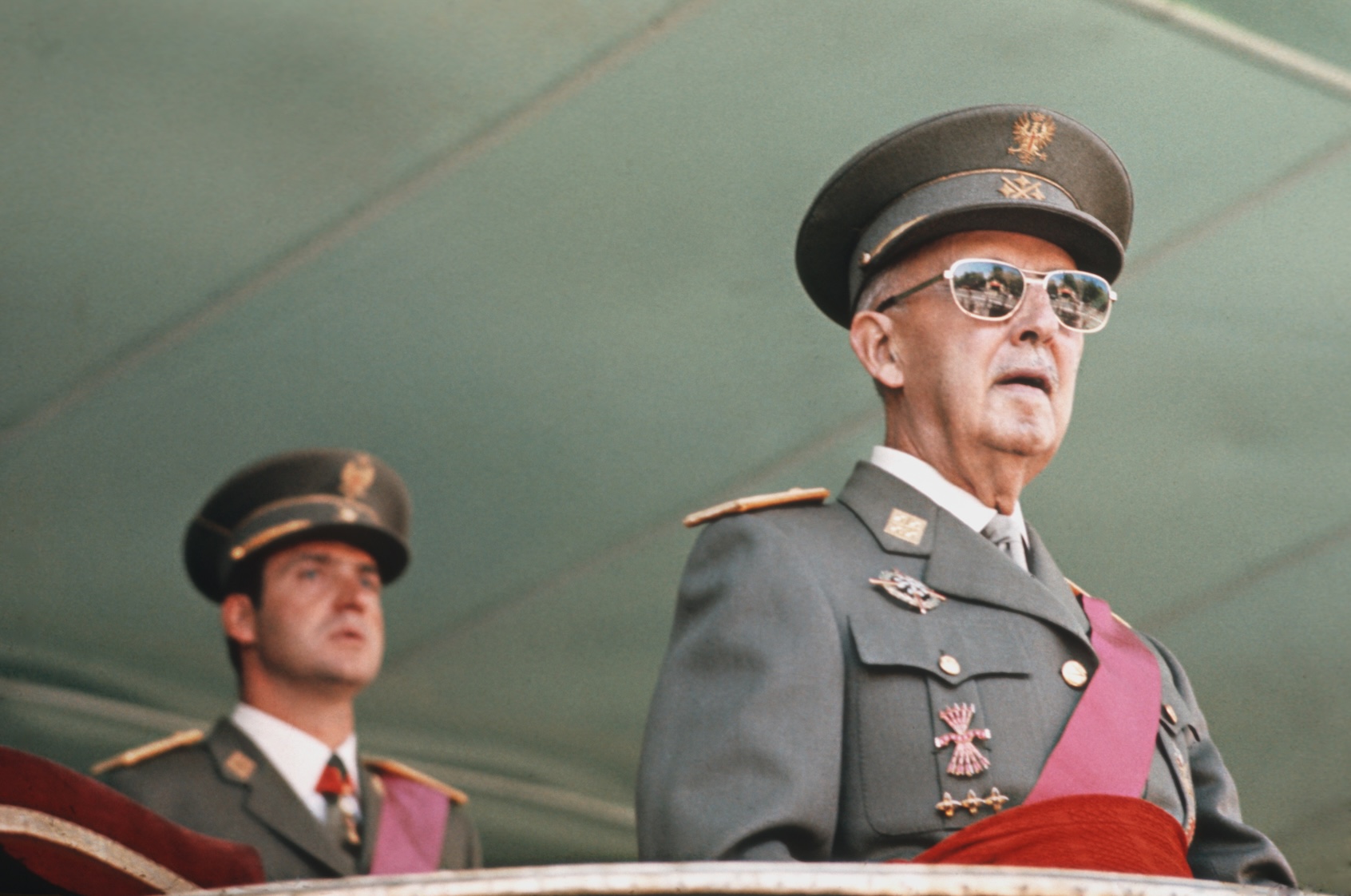Politics
American Far Right Draws Inspiration from Historical Dictators

A troubling trend has emerged among certain factions of the American far right, as they increasingly draw inspiration from historical authoritarian figures. Among these figures, the late Spanish dictator Francisco Franco has garnered renewed admiration, despite his death in 1975. This fascination reflects a broader connection between the authoritarian movement in the United States, often symbolized by Donald Trump, and the far-right movements in Europe.
The relationship between Trump and European far-right leaders is complex. While some European politicians and activists look to Trump for guidance, his influence appears to be waning in the United States. Nevertheless, individuals like Viktor Orbán of Hungary have maintained ties to Trumpist ideologies. Orbán’s governance has shifted Hungary towards a one-party state, raising concerns about the future of democracy in the country.
In the United States, figures such as Elon Musk, JD Vance, and Marco Rubio have made attempts to engage with European politics, sometimes aligning themselves with controversial groups. For instance, Musk’s support for the far-right activist Tommy Robinson has drawn criticism, revealing a disconnect between their intentions and the realities of European political landscapes.
The parallels drawn between Trump and historical fascists, particularly Adolf Hitler, have been the subject of numerous discussions. Some scholars note that the fervor Trump incites, along with the dismissive attitudes of his opponents, echoes the early life of Hitler. Author Joachim Fest once remarked on the “comical buffoon” who ascended to power despite lacking qualifications, a description that could apply to Trump in many respects.
The comparison to Benito Mussolini highlights another aspect of Trump’s appeal: his dramatic oratory and public persona. Mussolini, known for his flamboyant style, was a more intellectual figure than Trump, who often relies on a different form of engagement with his audience. Despite these differences, both leaders have attracted fervent supporters who admire their perceived strength and decisiveness.
Franco’s legacy is particularly relevant today, as his regime is often invoked by contemporary American right-wingers who admire his ability to suppress dissent and maintain power. Dan Kaufman, in an article for the New York Review of Books, emphasizes that Franco’s approach to governance—characterized by brutal repression and nationalist rhetoric—has found echoes in the strategies employed by some current American political figures.
During Franco’s rule, Spain experienced significant oppression, particularly against ethnic and linguistic minorities. Kaufman notes that Franco’s regime sought to erase dissent through propaganda and violence, fostering an atmosphere where any opposition was labeled as a threat to national identity. This historical context bears striking similarities to the current political climate, where dissenters are often vilified.
The resurgence of interest in Franco among modern right-wing circles can be traced back to figures like William F. Buckley Jr., who praised Franco as a national hero. This admiration has persisted, with current intellectuals and commentators suggesting that a “Protestant Franco” might be necessary for America’s future. This idea raises important questions about the nature of power and the lengths to which individuals might go to restore what they perceive as a lost order.
The historical lessons from Franco’s regime serve as a cautionary tale for contemporary politics. Although he ruled with an iron fist, the eventual decline of his regime highlights the risks of authoritarian governance. As the dynamics of American and European right-wing politics evolve, the implications of these historical comparisons will continue to resonate.
As the American far right navigates its identity and seeks models from the past, the lessons learned from Franco’s rule should not be overlooked. The desire to impose a rigid hierarchical order, combined with a rejection of progressive change, poses significant challenges for democracies worldwide. The ongoing examination of these historical figures will undoubtedly shape the future of political discourse in the United States and beyond.
-

 Science3 weeks ago
Science3 weeks agoOhio State Study Uncovers Brain Connectivity and Function Links
-

 Politics3 weeks ago
Politics3 weeks agoHamas Chief Stresses Disarmament Tied to Occupation’s End
-

 Entertainment3 weeks ago
Entertainment3 weeks agoMegan Thee Stallion Exposes Alleged Online Attack by Bots
-

 Science1 month ago
Science1 month agoResearchers Challenge 200-Year-Old Physics Principle with Atomic Engines
-

 World3 weeks ago
World3 weeks agoFDA Unveils Plan to Cut Drug Prices and Boost Biosimilars
-

 Entertainment3 weeks ago
Entertainment3 weeks agoPaloma Elsesser Shines at LA Event with Iconic Slicked-Back Bun
-

 Top Stories3 weeks ago
Top Stories3 weeks agoFederal Agents Detain Driver in Addison; Protests Erupt Immediately
-

 Business3 weeks ago
Business3 weeks agoMotley Fool Wealth Management Reduces Medtronic Holdings by 14.7%
-

 Entertainment3 weeks ago
Entertainment3 weeks agoBeloved Artist and Community Leader Gloria Rosencrants Passes Away
-

 Business3 weeks ago
Business3 weeks agoHome Depot Slashes Prices on Halloween Favorites Up to 75%
-

 Politics1 month ago
Politics1 month agoNHP Foundation Secures Land for 158 Affordable Apartments in Denver
-

 Top Stories3 weeks ago
Top Stories3 weeks agoOrioles Hire Craig Albernaz as New Manager Amid Rebuild








